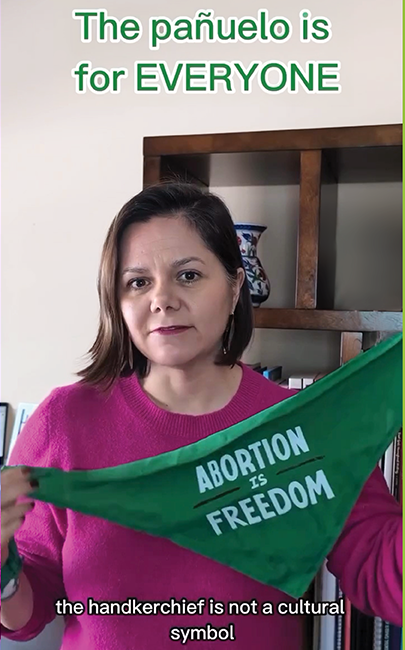Letter From Our Leadership

Last month, Guttmacher announced a new interim co-leadership model, with the two of us—Jonathan Wittenberg and Destiny Lopez—serving as acting co-CEOs for the year ahead. We are excited to support the exceptional efforts of our talented and dedicated staff at this key moment. Our Board is meanwhile diligently assessing leadership needs and preparing to launch a search for a permanent CEO.
As we navigate this leadership transition and confront a pivotal year for sexual and reproductive health and rights (SRHR) globally and in the United States, our experts stand ready to meet challenges and seize opportunities. In the months ahead, our dedicated staff will continue to produce the rigorous research and incisive policy analysis you expect from us, and will work to ensure that our evidence influences sound advocacy and policymaking.
Don’t miss the “Behind the Scenes” section in this edition of A Matter of Facts, profiling our Public Policy division. Led by Kelly Baden, this phenomenal group tracks the latest SRHR policy developments and trends, promotes research findings to advocates, crafts forward-thinking policy ideas and plays an active role in shaping policies at the state, national and global levels. Read on to learn how our Policy division is fostering collaborations with an array of allies to address inequities in access to care and promote a comprehensive vision for SRHR worldwide.
At Guttmacher, collaboration and partnership are integral to our mission. Together, we hope to demonstrate the power of diverse perspectives and voices and offer an aligned vision for a powerful SRHR movement.
We are grateful for your ongoing support,
Destiny Lopez and Jonathan Wittenberg
Acting Co-CEOs




 L to R: Mollie, Managi, Talia and Kimya. Floriane, who joined Guttmacher just before we went to "press," not pictured.
L to R: Mollie, Managi, Talia and Kimya. Floriane, who joined Guttmacher just before we went to "press," not pictured.
